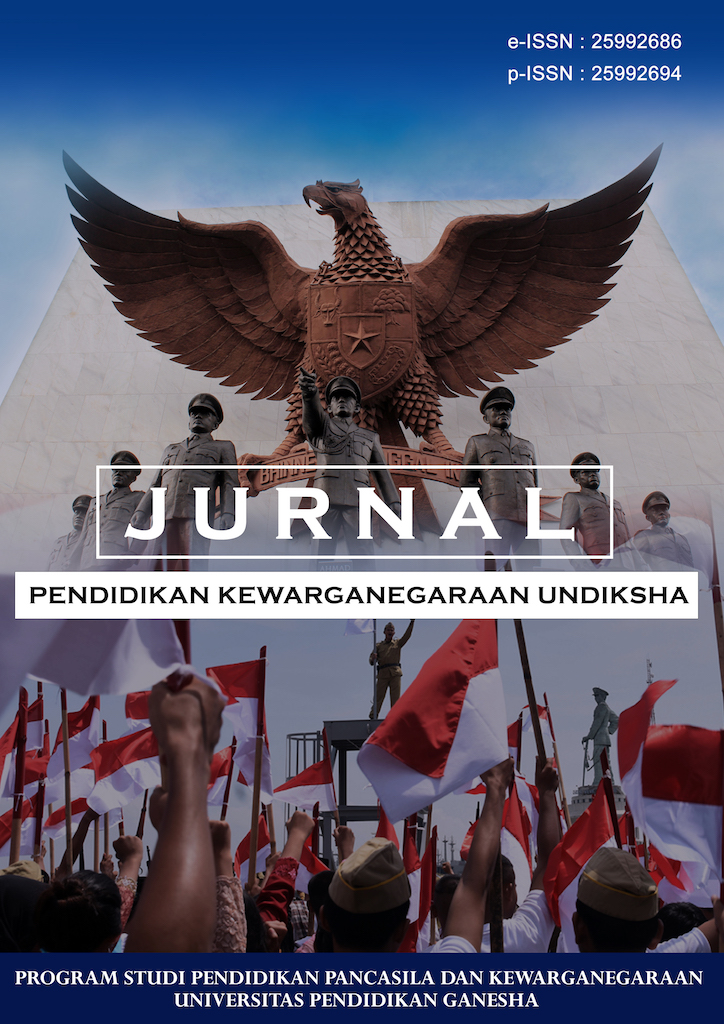PENERAPAN STRATEGI PEMBELAJARAN KOOPERATIF TIPE THINK-TALK-WRITE UNTUK MENINGKATKAN AKTIVITAS DAN HASIL BELAJAR PKn SISWA
DOI:
https://doi.org/10.23887/jpku.v6i3.22071Abstrak
Penelitian ini bertujuan untuk : Meningkatkan aktivitas belajar dan hasil belajar siswa dalam proses penerapan strategi pembelajaran kooperatif tipe think -talk- write siswa kelas XTK1 SMK Negeri 2 Singaraja tahun ajaran 2012/2013; Jenis penelitian ini adalah penelitian tindakan kelas yang terdiri atas dua siklus. Subjek penelitian ini adalah siswa kelas XTK1 SMK Negeri 2 Singaraja tahun ajaran 2012/2013. Objeknya meliputi aktivitas belajar dan hasil belajar PKn melalui penerapan strategi pembelajaran kooperatif tipe think-talk-write. Data penelitian dikumpulkan dengan menggunakan teknik observasi, wawancara, pemberian tes dan kuisioner. Selanjutnya data yang dikumpulkan dianalisis secara deskriptif kualitatif. Hasil dari penelitian ini adalah dapat meningkatkan aktivitas dan hasil belajar siswa melalui penerapan strategi pembelajaran kooperatif tipe think-talk-write.
Kata Kunci : Strategi Pembelajaran Kooperatif, Tipe Think-Talk-Write,
Unduhan
Diterbitkan
Terbitan
Bagian
Lisensi
Authors who publish with the Jurnal Pendidikan Kewarganegaraan Undiksha agree to the following terms:
- Authors retain copyright and grant the journal the right of first publication with the work simultaneously licensed under a Creative Commons Attribution License (CC BY-SA 4.0) that allows others to share the work with an acknowledgment of the work's authorship and initial publication in this journal.
- Authors are able to enter into separate, additional contractual arrangements for the non-exclusive distribution of the journal's published version of the work (e.g., post it to an institutional repository or publish it in a book), with an acknowledgment of its initial publication in this journal.
- Authors are permitted and encouraged to post their work online (e.g., in institutional repositories or on their website) prior to and during the submission process, as it can lead to productive exchanges, as well as earlier and greater citation of published work. (See The Effect of Open Access)










